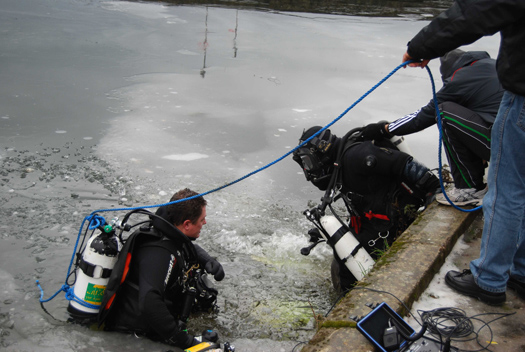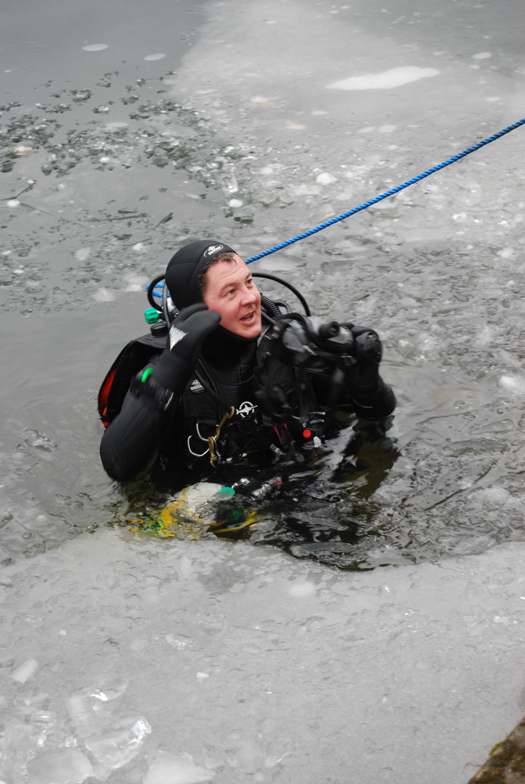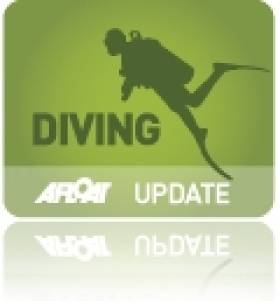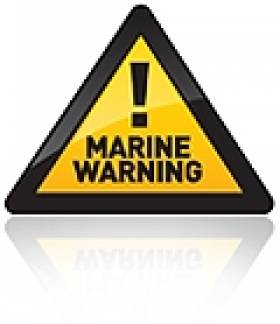Displaying items by tag: ice
Stranded Antarctic Passengers Rescued By Helicopter
#AntarcticIce - The Guardian reports that a helicopter mission to rescue stranded passengers - including two of the paper's journalists - from a research vessel stranded by ice in Antarctica has been successful.
As previously reported on Afloat.ie, the Akademik Shokalskiy became trapped in pack ice far south of Tasmania on Christmas Eve after embarking on a private expedition retracing the route of Australian explorer Douglas Mawson a century ago.
A number of attempts to reach the stricken ship by icebreaker failed due to poor weather, with lack of visibility also hampering plans to airlift the passengers from the vessel by helicopter.
But it's been confirmed that a rescue chopper sent from the Chinese icebreaker Xue Long managed to land next to the Akademik Shokalskiy in the early hours of this mooring (2 January) to retrieve the first group of passengers, most of whom were removed to the icebreaker Aurora Australis after five back-and-forth flights.
The Russian crew of the ship will remain on board to free it from the ice when conditions improve as is forecast over the next few days.
The Guardian has much more on the story HERE.
Antarctic Vessel Remains Trapped In Ice As Latest Rescue Effort Stalls
#AntarcticIce - A research vessel carrying journalists from the UK's Guardian remains trapped in Antarctic ice after a failed attempt by an Australian icebreaker to reach the ship, the newspaper reports.
The Akademik Shokalskiy has been trapped for more than a week far south of Tasmania, some 100 nautical miles from the French Antarctic station Dumont D'Urville, after embarking on a private mission to mark the centenary of Australian explorer Douglas Mawson's expedition to the ice-bound continent.
A previous rescue attempt by Chinese icebreaker the Snow Dragon was halted by thick ice within sight of the trapped vessel, while the latest effort by the Aurora Australis reached as close as 10 nautical miles before it was forced to turn back thanks to poor visibility, which is also hampering plans to airlift the stricken ship's 74 passengers and crew.
The Guardian's Alok Jha and Lawrence Topham are currently updating their experiences on the paper's Antarctica Live blog.
Ice Diving in Ireland
The recent arctic weather allowed many Irish divers to try out a type of diving that is only normally carried out in the Arctic, Norway, Iceland, Russia, Canada and much more Northern climates writes Timmy Carey. Many Irish rivers froze over completely, something that hasn't happened in recent living memory. This however is a hazardous form of diving as with thick ice if the diver cannot find the hole they entered they will drown if the ice is too thick to break and so they have a rope link to the hole. The other big hazard being hypothermia with the water being a very chilly two degrees celsius!, with most divers being thoroughly chilled after about 10 to 15 minutes. The big advantage
with this type of diving is generally that the visibility is excellent and allows a diver to try out ice diving without the cost of traveling to the arctic circle!


Stephane Portrait surfacing after a 20 minute dive under the ice of the river Blackwater in Munster
'No Such Thing as Safe Ice' - Irish Water Safety Issues Warning
The Chairman of Irish Water Safety, Frank Nolan is warning the public about the danger of drowning as the current spell of bitter cold weather has resulted in frozen ice over canals, rivers and lakes. Children are especially at risk as they are attracted to playing on ice. Constant supervision is the key to keeping children off the ice. He cautions parents that "there is no such thing as safe ice". Also at risk are individuals who attempt to rescue others fallen through ice. "Ice-related drownings often occur when the rescuer gets into difficulty attempting to rescue another person or a family pet. Whereas a pet will often manage a scramble to safety unaided, regrettably, the owner may not.Playing or fishing on the frozen edges of a river, lake or canal is perilous as ice can be quite thick in one area yet dangerously thin in others."
Ice Rescue Tips:
Carry your mobile - Call for assistance from the emergency services.
Do not attempt a rescue by going onto ice.
Instruct the casualty to keep still thereby maintaining their heat and energy.
Try to find something close by that will extend your reach such as a ringbuoy, rope, pole, branch or items of clothing. Throw this to the casualty. Then make sure you are stable on the bank by lying down or getting someone to hold onto you and attempt to pull the casualty from the water.
If you cannot find something with which to perform a reach or throw rescue, try to find something that will float to throw or push out to them. This will help keep the casualty afloat until assistance arrives.
Throughout your rescue KEEP OFF THE ICE, and continue to reassure the casualty, keeping them talking until help arrives.
All casualties should be taken to hospital even if they appear to be unaffected by their ordeal as they will be suffering from hypothermia.
Christmas Charity Swims
The Christmas season in Ireland is a time when thousands of people participate in traditionally run sponsored swims in support of many charitable causes.
People organising these swims on Christmas Day, St. Stephen's Day or New Year's Day should ensure that they provide comprehensive details of each event to the Irish Coast Guard and local Gardai.
Each event should have a Safety Officer appointed, who will advise those concerned on safety and have the ultimate responsibility for making decisions in relation to the swim being on or off on the day.
If the seas are rough and weather deteriorates, they should defer the event to a more suitable day without question - do not take a chance on running the event.
Many participants will not have had a swim since the summer and the temperature of the water has now dropped considerably. It is a fallacy that alcohol will keep you warm when entering the water; in fact it could impair your sense of judgment, distance and direction. Cold water can cause cold shock and hypothermia in minutes.
Swimmers' remaining in the water for extended periods in a gesture of bravado is not acceptable. The message is "Get In, Get Out and Dry Off well".
LIFESAVING WATER SAFETY POINTS THIS CHRISTMAS:
In a Marine Emergency call 999 or 112 and ask for the Coast Guard.
Supervise children at all times, but especially if you are on holidays abroad this Christmas.
Never swim alone in a pool unprotected by lifeguards. Ensure that there are lifeguards on duty.
Avoid cold shock and hypothermia on Christmas and New Year Charity Swims.
Do not engage in any water-based activities after the consumption of alcohol, remembering also road safety.
Always wear a Lifejacket when boating or participating in other aquatic sports.
Be aware of flood dangers and make to higher ground.
Be careful when fishing from rocks or on the banks of rivers, or lakes.
Warning - Snow Bound Harbours Pose Major Risk
Snow bound harbours and ice covered jetties in particular are dangerous to walk on or near because of the risk of slipping, tripping or falling near to the water's edge.
Sections of the Royal and Grand Canals and the Shannon Erne Waterway have restricted navigation due to ice accumulation.
Where water in lock chambers has frozen the public is warned not to attempt to cross over a lock in this state due to the great danger of ice cracking underfoot and being drowned in the lock.

































































